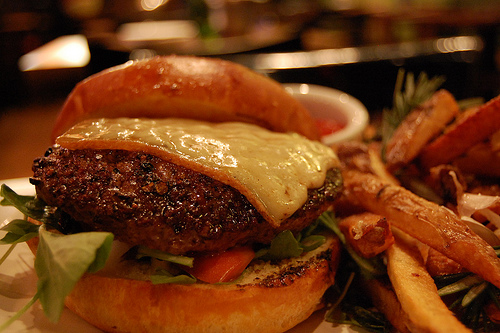
Could that slice of chocolate cake, that juicy cheeseburger or those crispy onion rings be just as addictive as heroin or cocaine? A new study suggests that the answer is “yes.”
The study, published in the Nature Neuroscience journal, found that when rats consumed a lot of high-fat, high-calorie food, it led to compulsive eating habits – similar to a drug addiction, CNN reports.
Here’s how it works: Both drugs and these kinds of fatty foods send a rush to the pleasure centers in your brain. However, the rush is short-lived and is followed by a “crash.” It will now take more and more of the substance to achieve the same “high,” Paul J. Kenny, Ph.D., an associate professor of molecular therapeutics at the Scripps Research Institute, told CNN.
“People know intuitively that there’s more to [overeating] than just will power,” he told CNN. “There’s a system in the brain that’s been turned on or over-activated, and that’s driving [overeating] at some subconscious level.”
The study looked at three groups of rats – one group was fed regular food, the second was fed fatty foods for an hour a day and the third was fed fatty foods for up to 23 hours per day.
The third group began to eat compulsively and began to require more and more fatty food to get the same “high.” It got so bad that the group would continue to eat – even in the face of pain.
“Their attention was solely focused on consuming food,” said Kenny.